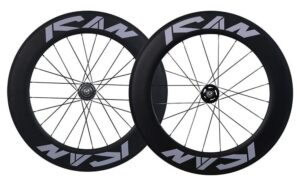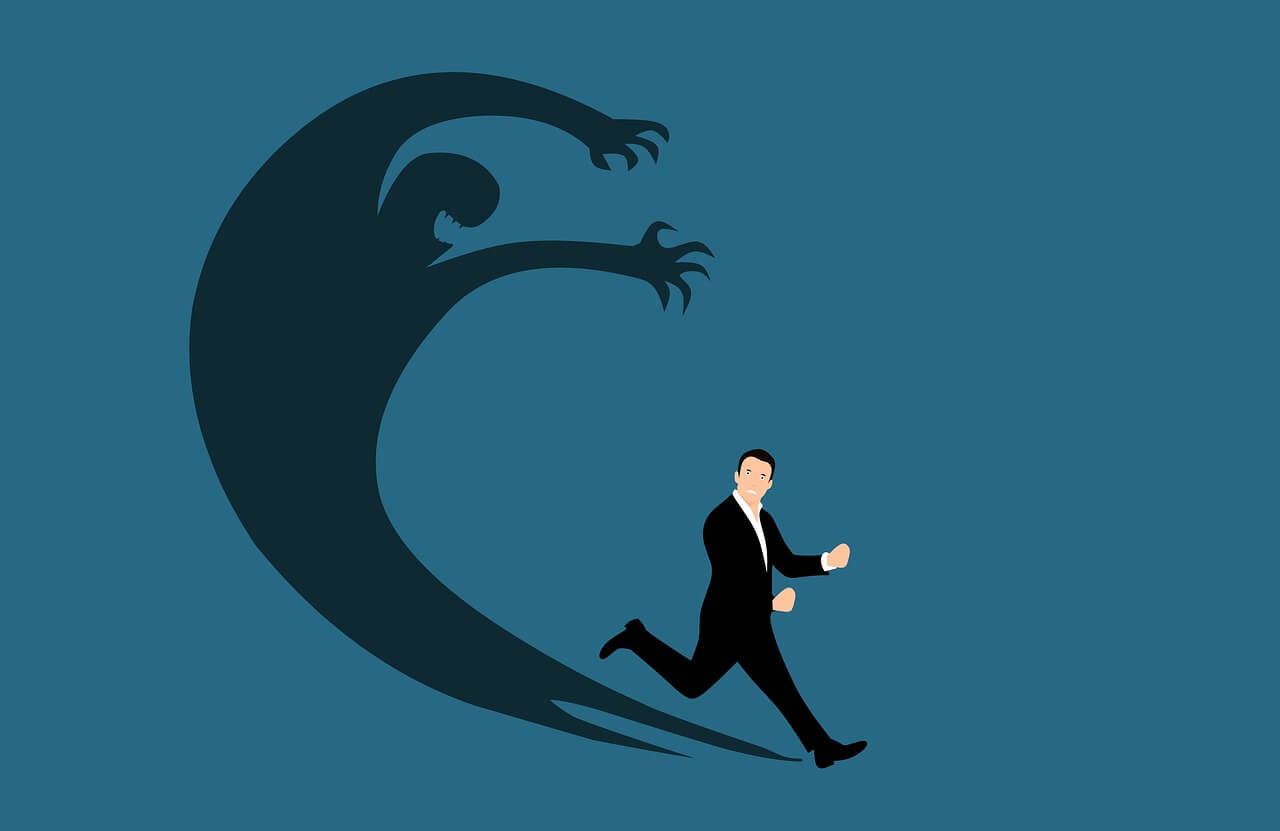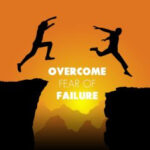In the third of my nine-part series exploring the obstacles that may hold you back in your triathlon life, I examined how perfectionism ultimately hurts your triathlon efforts and enjoyment. Fear of failure, another common obstacle, may be the single most common cause of performance difficulties for the triathletes who come to me for help. Whether they experience low confidence, pre-competitive anxiety, a preoccupation with results, or severe self-criticism, in most cases, when we dig deep enough, we discover a profound fear of failure at its root. Fear of failure causes triathletes to experience debilitating anxiety before they compete. It causes them to give less than their best effort and not take risks while competing, and, after a race, they feel regret for not performing up to their capabilities.
Meaning of Failure
Failure isn’t worth fearing. In fact, it’s an important part of striving toward our triathlon goals. The most successful people in triathlon—and in all walks of life—failed frequently and monumentally on the way to success. One classic example is that the basketball great Michael Jordan didn’t make his junior varsity team. What triathletes come to fear is not failure itself, but rather the meaning they attach to failure. At the heart of fear of failure is the belief held by triathletes that if they fail in our sport, then there will be some sort of bad consequence. Research that has investigated fear of failure has found the following as the most common fears among triathletes:
team. What triathletes come to fear is not failure itself, but rather the meaning they attach to failure. At the heart of fear of failure is the belief held by triathletes that if they fail in our sport, then there will be some sort of bad consequence. Research that has investigated fear of failure has found the following as the most common fears among triathletes:
- They will disappoint their parents (and their parents won’t love them).
- Their friends will no longer like them.
- They will be ostracized by their peer group.
- They will experience embarrassment, humiliation, or shame.
- They will be worthless people.
- All of their efforts will be a waste of time.
- They will experience the devastation of not achieving their goals.
- They will always be failures.
Triathletes with a fear of failure perceive failure to be a ravenous beast that pursues them relentlessly and must be avoided at all costs. If it catches them, it will eat and kill them. When they do succeed and avoid the beast, they only experience a small and brief amount of relief because they survived one more day without being eaten by failure. As a result, avoiding failure becomes their singular motivation and goal in life.
Cause of Fear of Failure
Triathletes get this destructive perspective on failure from the hyper-competitive sports culture in which “you gotta win, baby!” is the constant mantra. This fear of failure is exacerbated by a broader popular culture that makes failure beyond unacceptable. For example, on television and in the movies, the losers—nerds, unattractive people, the poor—are teased, bullied, and rejected. With this definition of failure, popular culture has created a culture of fear and avoidance of failure. It has conveyed to people in general and triathletes in particular that if they fail, they will be shunned by their peers and branded as losers for life!
 Many parents have also fallen under our culture’s spell of failure. They’ve compounded the harm that failure can inflict on children by becoming overly invested in their children’s athletic lives (think Little League parents) to such an extent that their self-esteem becomes dependent on their children’s athletic success. Many parents also unwittingly connect their own love and approval toward their children on whether their children succeed or fail. The messages that young people often receive from their parents (however unintentionally) is “I won’t love you if you lose.” either indirectly through their parents’ emotional reactions (e.g., anger, frustration, disappointment after a poor performance) or directly through what they say to them (“Why did you do so poorly?” said with an angry tone). Children come to see failure as a threat to their very value as people, their status within their family, and their place in society as a whole.
Many parents have also fallen under our culture’s spell of failure. They’ve compounded the harm that failure can inflict on children by becoming overly invested in their children’s athletic lives (think Little League parents) to such an extent that their self-esteem becomes dependent on their children’s athletic success. Many parents also unwittingly connect their own love and approval toward their children on whether their children succeed or fail. The messages that young people often receive from their parents (however unintentionally) is “I won’t love you if you lose.” either indirectly through their parents’ emotional reactions (e.g., anger, frustration, disappointment after a poor performance) or directly through what they say to them (“Why did you do so poorly?” said with an angry tone). Children come to see failure as a threat to their very value as people, their status within their family, and their place in society as a whole.
If these messages from parents persist, children internalize them and make them their own. At some point, they no longer need their parents to send those messages. Instead, the young people view themselves through the lens of their parents’ criticism and send those same messages to themselves in the form of unrelenting judgment and self-criticism. And this self-flagellation continues into adulthood and bleeds into their triathlon lives.
Avoiding Failure
If you have a fear of failure, you learn that you can avoid failure three ways. First, you can simply quit triathlon. If you don’t race, you can’t fail. Mysterious and persistent injury or illness, damaged equipment, apparent lack of interest or motivation, or just plain refusal to take part are common ways in which you can avoid failure and maintain your personal and social esteem. Yet, choosing not to compete in triathlons can be a painful decision because, despite your profound fear of failure that may drive you to quit, at a deep level, you very likely love our sport and your decision to quit can make you feel even worse for not having the strength to continue.
deep level, you very likely love our sport and your decision to quit can make you feel even worse for not having the strength to continue.
Second, you can avoid the perceived consequences of failure by failing but protecting yourself from the failure by having an excuse—“I would have done well, but I bonked on the run” or “I would have done better, but I didn’t taper long enough.” This is called self-defeating behavior or self-sabotage. You guarantee failure, but the excuse protects you because your failures are not your fault; you can’t be held responsible, and our culture and your peers must continue to see value in you.
Third, you can avoid failure by getting as far away from failure as possible by find some success. But if you are driven to avoid failure, you get stuck in limbo between failure and real success, what I call the “safety zone.” You are far from failure, so no one can accuse you of being a failure, for example, you finish in the top 10 in a race, but you are also frustrated because a part of you knows that you could have done better. But to find real success, you must be willing to take risks. The problem with risks is that, by their very nature, they may not pay off and they may result in failure. If you are more concerned with avoiding failure than pursuing success, you’ll focus on the downsides of risk and, as a result, you will be unwilling to take those risks that are necessary to experience real success.
Not Really a Fear of Failure
As I explored fear of failure in the athletes I have worked with, I was struck by an odd paradox. These athletes have a profound fear of failure, yet they end up doing things that actually cause themselves to fail by doing something that ensures failure (e.g., have a pessimistic attitude, not be well prepared, or give up without a fight), even when success is within their reach. I was stumped by this conflict: Why would athletes who fear failure so much actually do things that guarantee failure (even if they had an excuse to protect them)?
 As I just described, self-defeating behavior or self-sabotage protects your self-esteem and how others view you by providing you with an excuse for your failures: “See, it wasn’t my fault, so I’m actually still really good and you still have to love me.” That excuse allows you to avoid taking responsibility for the failure, thus protecting you from feeling like a failure.
As I just described, self-defeating behavior or self-sabotage protects your self-esteem and how others view you by providing you with an excuse for your failures: “See, it wasn’t my fault, so I’m actually still really good and you still have to love me.” That excuse allows you to avoid taking responsibility for the failure, thus protecting you from feeling like a failure.
But there are four big problems with this unconscious strategy:
- There is no excuse line on the results sheet.
- Whether you have an excuse or not, you still failed.
- You caused yourself fail, which makes you feel even worse.
- Nobody really cares why you failed; the simple fact is that you failed.
This contradiction led me to the conclusion that athletes don’t have a fear of failure, but rather they have a fear of total failure. I define total failure as “giving it your all and not achieving your goals.” When I ask athletes if total failure is a good or bad thing, the response is unanimous and emphatic; it is the worst thing! So, what is so bad about total failure? If you give everything you have and don’t achieve your goals, you have to admit that you simply aren’t good enough and there’s nothing more you can do. And that realization is very difficult for any committed triathlete with big goals to accept. For someone with a fear of failure, better to fail with an excuse than experience total failure because, as I just said above, it allows you to avoid the consequences of total failure (e.g., disappointment of others, wasted time, shame) and always leaves open the possibility of your succeeding in the future.
Yet I would argue that total failure is a good (though not ideal) thing because, even though you may not reach your ultimate goal, if you did everything you could to achieve it, that’s all you can really do. To put this in perspective, I define total success as you giving it everything you have and achieving your goal. Is total success a good or bad thing? It is a great thing (not a trick question)! But total success and total failure have one thing in common: giving it everything you’ve got. So, your real goal is to experience “total” something, whether success or failure, because, in either case, you give it your all and what more can you do. If you don’t achieve your ultimate goal, will you be disappointed? Of course, but that feeling won’t last long. What will last endure is the indelible pride and satisfaction you will feel at having given your best effort and performing as well as you possibly could have. Also, the simple reality is that giving it everything you have is your only chance to find success in triathlon. If you don’t give your best effort, you have zero chance of being successful.
“total” something, whether success or failure, because, in either case, you give it your all and what more can you do. If you don’t achieve your ultimate goal, will you be disappointed? Of course, but that feeling won’t last long. What will last endure is the indelible pride and satisfaction you will feel at having given your best effort and performing as well as you possibly could have. Also, the simple reality is that giving it everything you have is your only chance to find success in triathlon. If you don’t give your best effort, you have zero chance of being successful.
In sum, to let go of a fear of failure and free yourself to pursue your triathlon goals without reservation, you must embrace the following: “To achieve Total Success, I must be willing to accept Total Failure.” By doing so, you will have nothing to fear from failure and, as a result, will be liberated to pursue total success with unrestrained determination and drive.
Nothing to Fear
There are three aspects of this perspective on fear of failure that are particularly unfortunate. First, none of the bad meanings that you may attach to failure will likely come true. Your friends will still care about you, you will still be worthwhile, your time will still be well spent, you can still be successful, and you will get over the fact that you may not achieve all of triathlon goals. In other words if you fail, you will be disappointed, but you will be okay.
Second, your fear of failure is utterly self-defeating; it does you no good at all. It creates a win (but not really)-lose situation. You win (again, not really) by protecting yourself from total failure. But you lose big time. You don’t achieve your goals. You kick yourself for not giving your best effort. And you continue a pattern of thinking, emotions, and behavior that not only hurt your triathlon efforts, but may very well continue to haunt you in every aspect of your life.
Third, if you could just let go of your fear of failure and truly give it your all, that is, perform in triathlon with total commitment, confidence, courage, and abandon, the chances are that you will find some degree of success. How much success depends on a lot of things unrelated to what goes on between your ears. I can’t guarantee that you will end up on top of the Olympic podium or competing in Kona, but, as I often say, good things would happen.
Moreover, if you risked total failure, contrary to being devastated by all of those painful emotions you worry about, you would actually feel wonderful emotions, such as excitement, joy, pride, and inspiration. Why? Because you gave your fullest effort and left it all out there. And, ultimately, that’s all you can do.
Do you want to take the next step in training your mind to perform your best in training and on race day? Here are four options for you:
- Read my latest mental training book: Train Your Mind for Athletic Success: Mental Preparation to Achieve Our sports Goals.
- Listen to my Train Your Mind for Athletic Success
- Take a look at myonline mental training courses.
- Schedule a 1:1 session with me.







